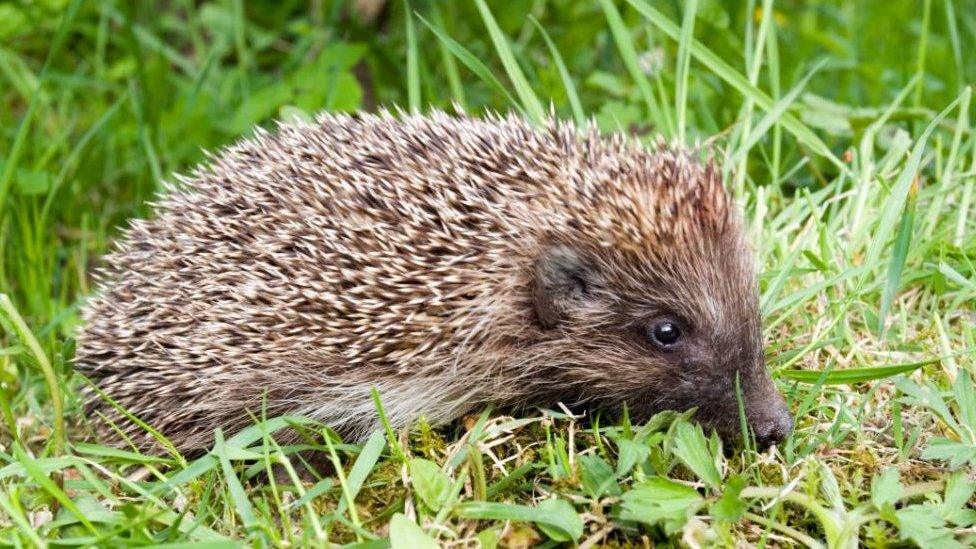Brandon Marsh: Heatwaves leave wildlife struggling to find food
- Published
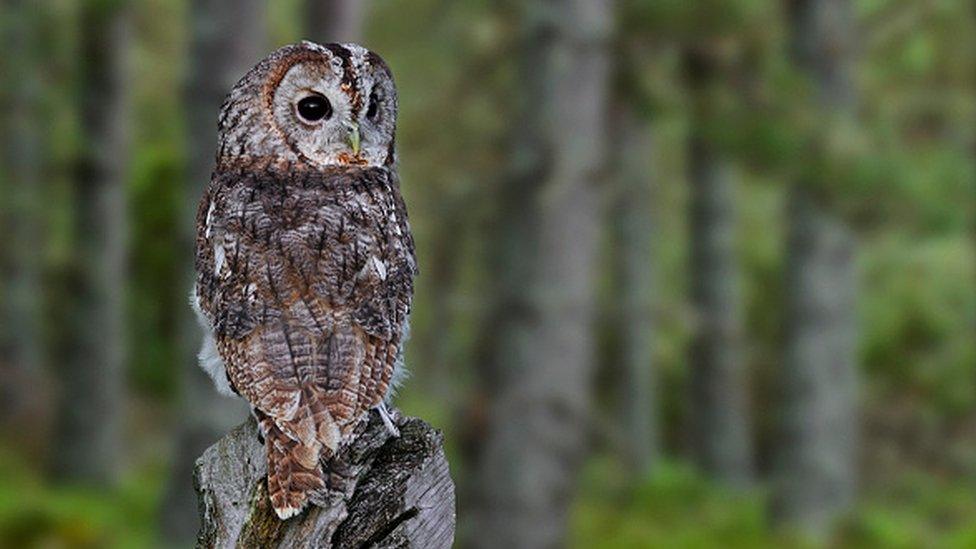
Tawny owls, badgers and moles struggled to find food as temperatures rose, Brandon Marsh staff said
Heatwaves this summer have had a "substantial" negative impact on wildlife at a nature reserve in Warwickshire, staff have said.
Four days of high temperatures in August brought hard ground, low water levels and scorched leaves that left Brandon Marsh looking "like Autumn".
Badgers, tawny owls and moles are said to be struggling to find food as worms burrow deeper underground.
Elsewhere in the county, animals have died.
"The water levels have dropped in some pools quite considerably," Erin Green, the visitor experience manager at Brandon Marsh, told BBC Radio CWR.
She added this was particularly important for water birds that needed wet, muddy areas for breeding and raising their young.
In a bid to combat the dry conditions, staff have transferred water from bigger pools.
Ms Green said: "We only have so much water on the reserve and we need the rain to top these pools back up."
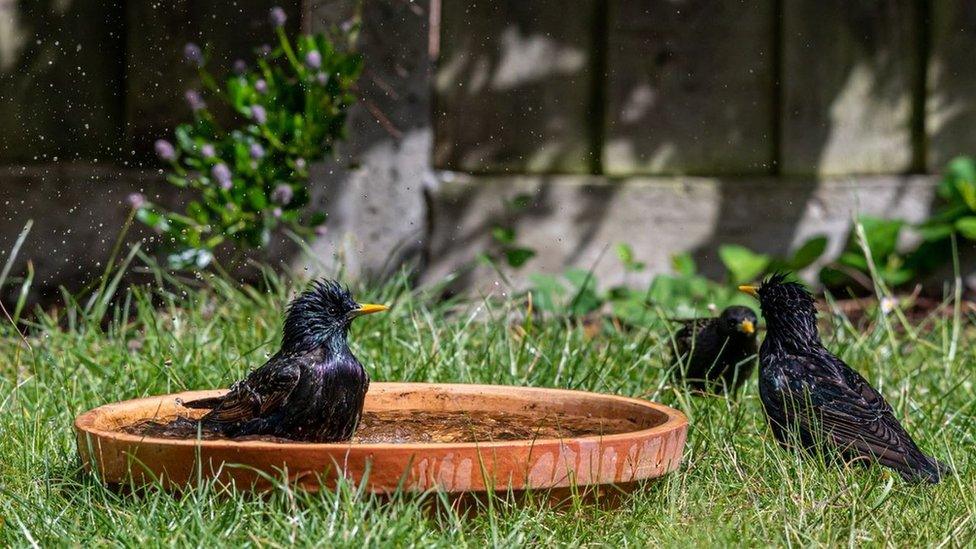
People are being asked to leave out shallow bowls of water for wildlife during hot weather
Extreme heat also lead to the death of more than 300 fish amid low water levels at Abbey Fields in Kenilworth, according to Warwick District Council..
Nick Martin, nature reserves manager at Warwickshire Wildlife Trust, advised residents to provide shade and a shallow bowl of water in their gardens to help animals suffering in the heat.

Follow BBC West Midlands on Facebook, external, Twitter, external and Instagram, external. Send your story ideas to: newsonline.westmidlands@bbc.co.uk, external
Related topics
- Published15 August 2022
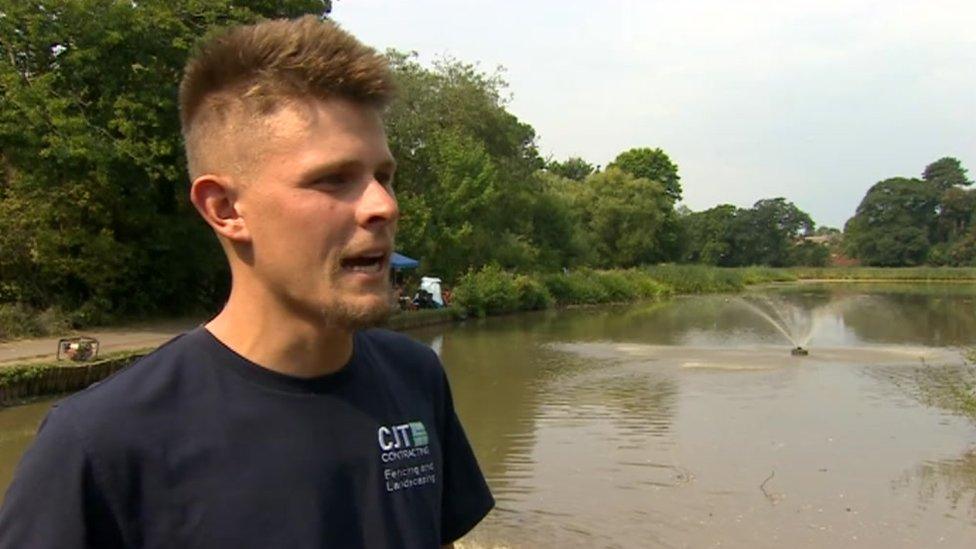
- Published15 August 2022
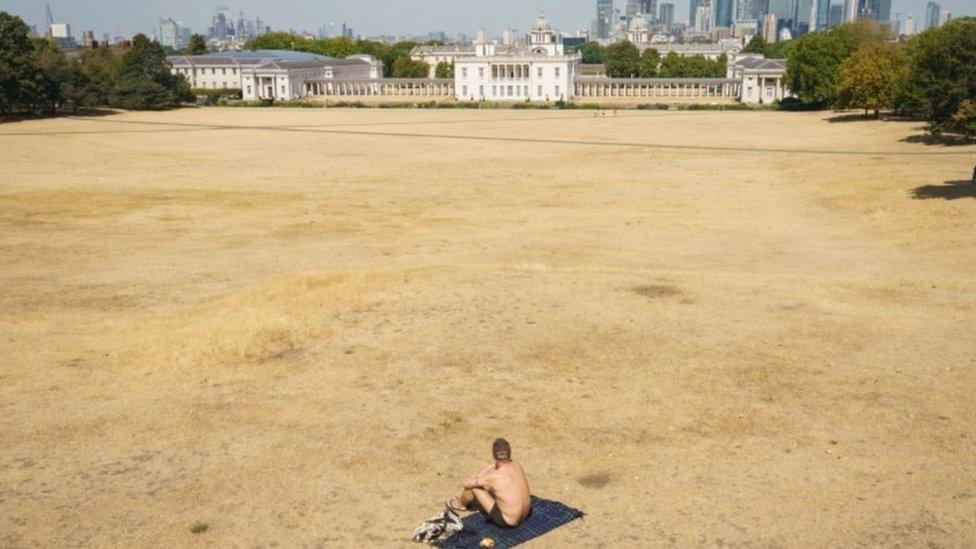
- Published10 July 2022
